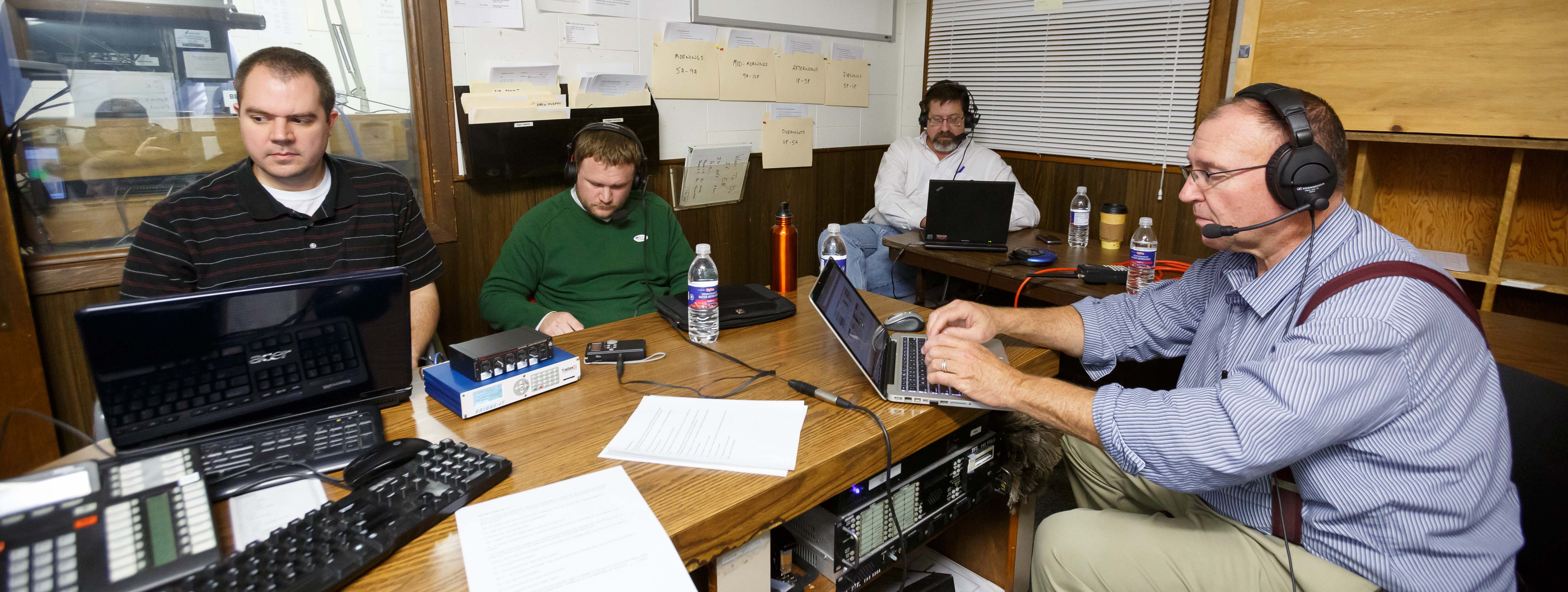What do psychology, economics and politics have in common? Well, besides being majors at Central College, they are all sciences that study the behavior of people, particularly the decisions people make. And in November, the people of our country made a big decision. They elected a president.
Brian Peterson, professor of economics; Andrew Green, associate professor of political science; and Randall Renstrom, assistant professor of psychology, joined Dr. Bob Leonard of the local radio station KNIA/KRLS on election night to analyze and provide commentary on the election results—presidential, state and local.
“The beauty of it, in my opinion,” says Peterson, “is that none of us have a particular agenda. It’s just fun to see how things play out and then think about the implications of the results as they come.
All three faculty members predicted that President Obama would be re-elected and would garner somewhere between 290 and 330 electoral votes, so they all ended up being close to the total. “It was pretty clear what was going to happen,” says Peterson. “It was simply fun watching that unfold.”
 Green especially enjoyed the interplay of the three different disciplines, which is a highlight of working at Central College. “We all bring a different political perspective to the table, which leads to interesting discussion,” he says. “Furthermore, Bob, as the moderator, asked good questions, which required us to apply the findings of empirical research from our disciplines to the election under discussion.”
Green especially enjoyed the interplay of the three different disciplines, which is a highlight of working at Central College. “We all bring a different political perspective to the table, which leads to interesting discussion,” he says. “Furthermore, Bob, as the moderator, asked good questions, which required us to apply the findings of empirical research from our disciplines to the election under discussion.”
It’s this hard-news take that has won them renown in the past. Leonard invited Green and Peterson to help with the 2008 elections, too. Their coverage of the 2008 caucuses won them a first place award for political coverage from the Iowa Broadcaster’s Association.
As an economist, Peterson is sometimes surprised that people care so much about politics. The theory or rational ignorance suggests that it’s rational for citizens to choose not to vote because the cost of becoming fully informed outweighs the benefits of any individual vote.
But stepping out of his economist shoes, Peterson knows that voting sends a signal. “If you’re concerned about where our economy is, where our country is heading, then it behooves you to get involved,” he says. “There’s value in the voting process itself. It states that you do care about where things are going.”
As a political scientist, Green has a different take. He says that our political system is based on the consent of the governed. Electing a president or members of Congress is entering into a social contract with them, where they have the authority to make binding decisions on our behalf and we have the authority to rescind the contract in the next election. “If citizens do not participate,” says Green, “they are abdicating their right to negotiate the contact.”
College students, in particular, are impacted by the decisions of their representatives. Green says that issues such as Medicare and Social Security are now dominating the political scene, while student financial aid is often shunted aside. “If college students want their issues to be taken seriously, they need to be serious about participating,” he says. “College students are impacted by more governmental policies than they know, so it is important for them to be informed, make informed decisions and participate.”
Fortunately, Central students followed the lead of their professors this election cycle and voted early on campus in large numbers.



